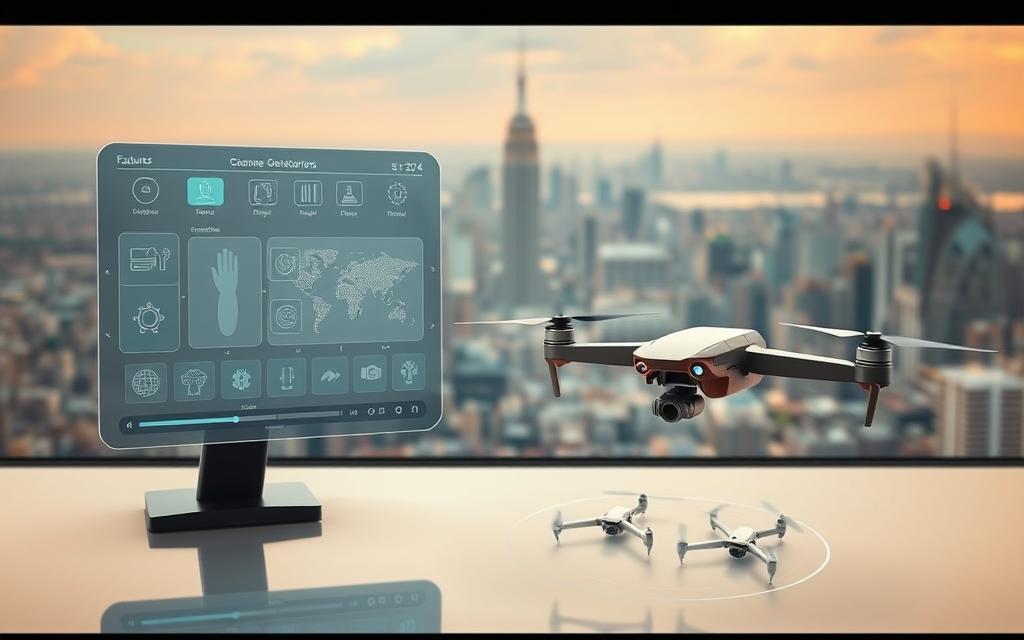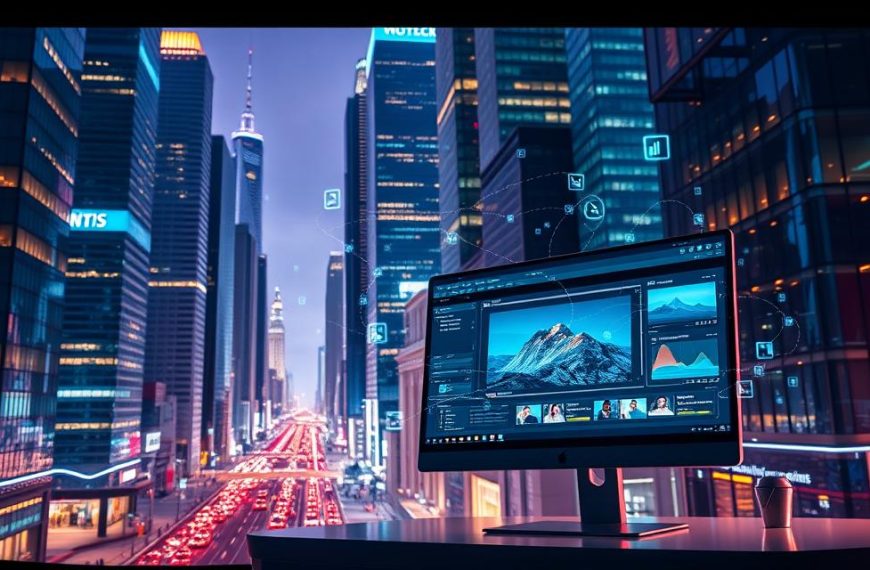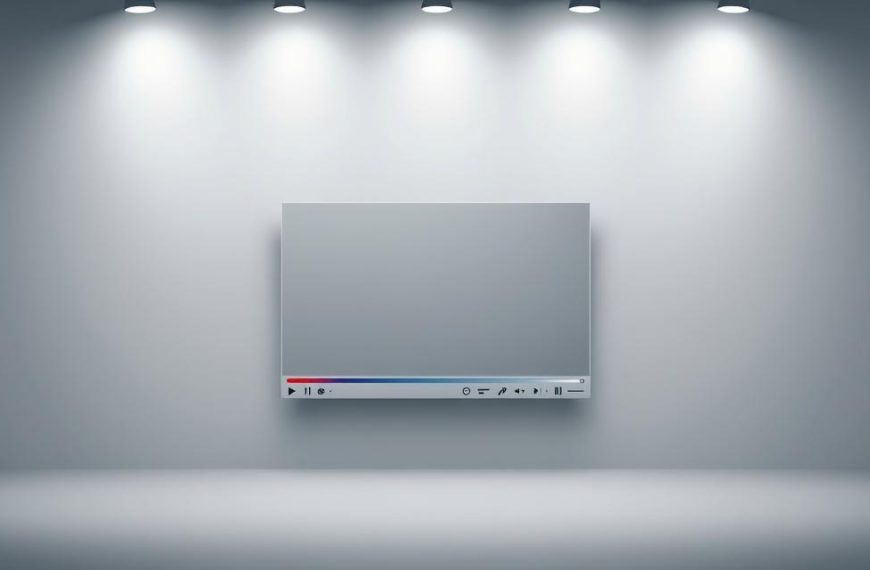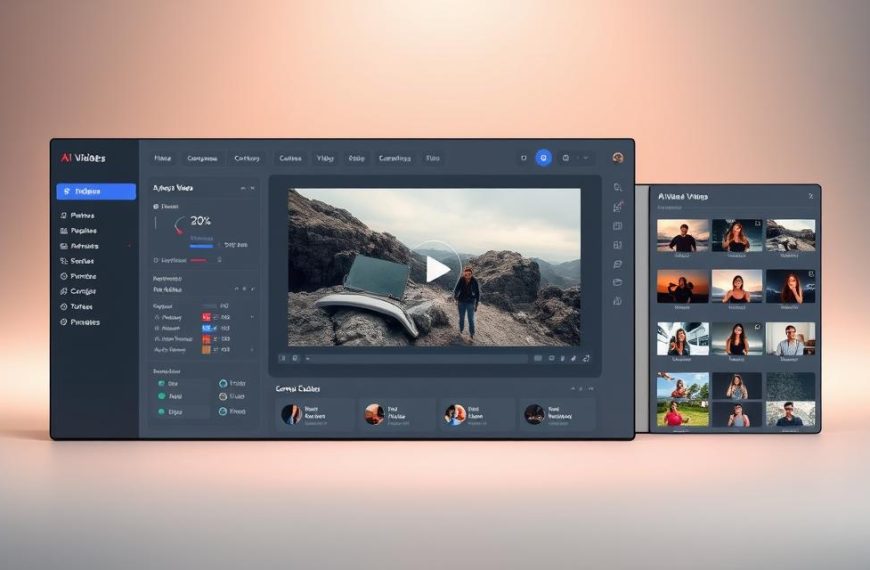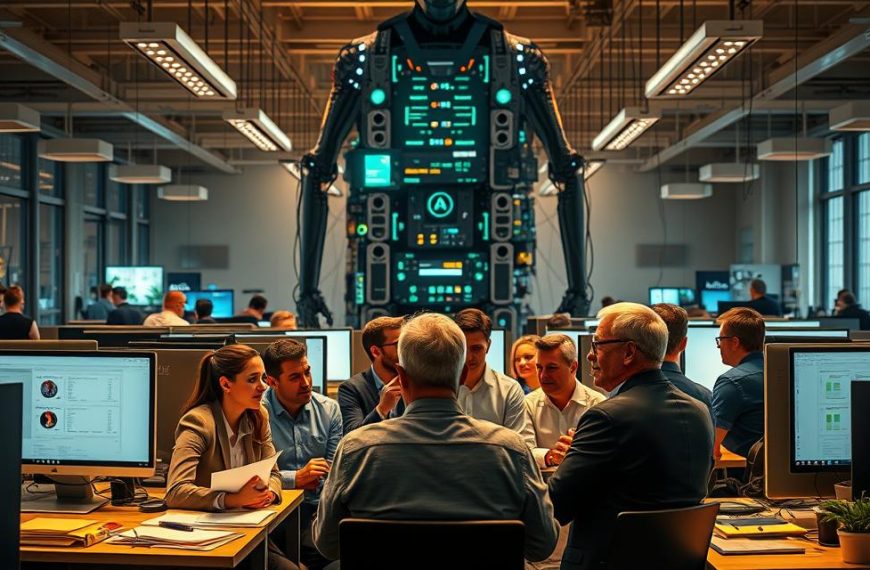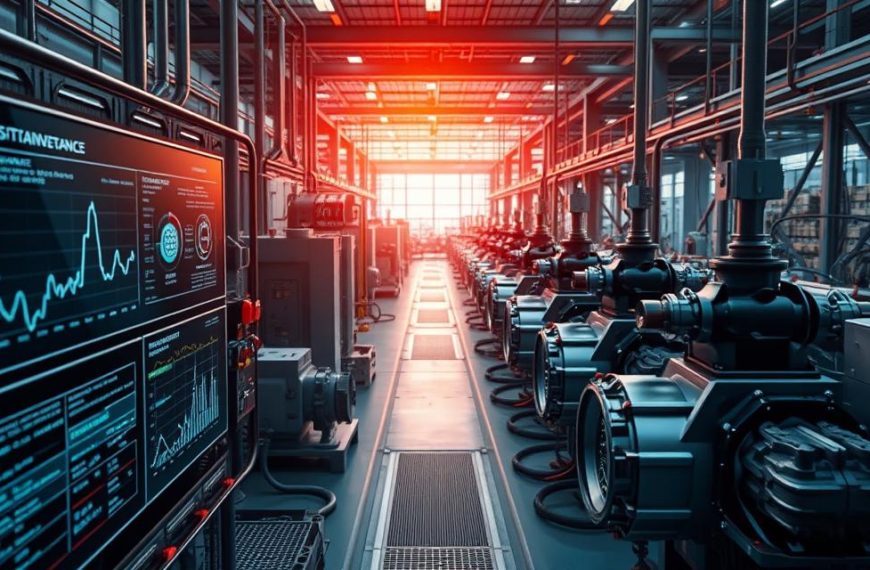The digital world is changing fast in 2024. Artificial intelligence is changing how we make visual content. Now, making professional videos is easy for everyone, from marketers to social media fans.
Platforms like Google Veo and Runway can make full videos from just text. This is a big step forward in making content.
Finding the right tool for making short videos is important. You need to think about what you want to achieve. Whether it’s for ads or telling stories, there’s a tool for you.
If you want more control over your videos, check out advanced AI video editors. They offer more creative options. The right tool can change how you make content.
This guide will show you the best video software for 2024. We’ll help you find the perfect tool for your creative ideas and work needs.
The Evolution of AI-Powered Video Creation
The journey of AI video technology is truly fascinating. It has changed how we make and watch videos. From simple editing to creating full videos, these tools have revolutionised content creation.
At first, AI tools helped with basic tasks like colour correction. They needed a lot of human input and knowledge. But then, machine learning changed everything. It could understand and create content on its own.
Revolutionising Digital Content Production
Today, generative video AI has made content creation easy. You no longer need expensive gear or special skills. Just a text prompt can make a professional video.
This change has opened up content creation to everyone. It’s no longer just for experts. Now, teams can focus on the story and strategy, not just the tech.
Key improvements in the digital content revolution include:
- Real-time rendering capabilities
- Multi-format output options
- Automated compliance checking
- Intelligent content optimisation
Why 2024 Represents a Significant Leap Forward
2024 is a big year for AI video. It has overcome old limits on video length, quality, and audio. Now, AI can make videos that look like they were made in a studio.
Google’s Veo technology shows this progress. It can create audio and sync it perfectly with the video. Runway’s Aleph model takes editing further with advanced object manipulation.
These 2024 AI advancements bring real benefits:
| Feature | 2023 Capability | 2024 Improvement |
|---|---|---|
| Video Duration | 15-30 seconds | 2-3 minutes |
| Audio Integration | Separate processing | Native generation |
| Realism Score | 70-80% | 90-95% |
| Processing Speed | 5-10 minutes | 1-2 minutes |
These improvements make AI video tools better for business. Marketing teams can make videos in hours, not weeks. Educational content is more engaging with dynamic visuals. The digital content revolution is speeding up as these tools get smarter and easier to use.
Essential Criteria for Evaluating AI Video Tools
Choosing the right AI video generator is a big decision. You need to look at several key factors. A detailed AI video evaluation helps find tools that give professional results and meet your needs.
Must-Have Features in Modern Generators
Today’s AI video platforms need to have a lot of features. High-quality output is a must, with options from 1080p to 4K.
Being able to add your own style and branding is important. The tool should also be easy to use, for both newbies and experts.
Features like AI motion tracking and audio cleaning make a big difference. They help create videos that look polished without a lot of editing.
Performance Benchmarks for Quality Assessment
Setting clear performance benchmarks is key for comparing tools. How realistic the AI videos look is a big factor.
Consistency in video quality is also important. It shows the tool can deliver reliable results. How flexible the tool is in different styles matters too.
Top tools like Wondershare Filmora and Descript set the bar high. They show how using the right must-have features leads to better quality.
| Evaluation Criteria | Minimum Standard | Premium Level | Industry Leaders |
|---|---|---|---|
| Output Resolution | 1080p HD | 2K Quality | 4K Ultra HD |
| Customisation Options | Basic templates | Brand integration | Full creative control |
| Advanced Features | Basic editing tools | Motion tracking | AI audio enhancement |
| Ease of Use | Steep learning curve | Intuitive interface | Beginner-friendly workflow |
This detailed video quality assessment guide helps creators compare tools. Tools that do well in many areas usually give the best results.
Having good support and customer service is also key. Reliable help ensures your video-making process goes smoothly.
Leading AI Short Video Generator Platforms
Several platforms lead in artificial intelligence video creation. Each has unique features for different users. This review looks at three top solutions.
Runway ML
Comprehensive Overview
Runway ML is at the forefront of AI video tech. It uses advanced models for editing and content creation. This makes it a top choice for professionals.
Notable Advantages
The platform’s quality is high, matching traditional methods. It has lots of tutorials and guides. The interface lets users control every detail of their videos.
“Runway ML has transformed our creative workflow, allowing us to produce studio-quality content with significantly reduced production time.”
Potential Limitations
New users might find it hard to learn because of its many features. It’s pricey, which could be a problem for those on a tight budget.
Key Functionalities
- Video expansion and manipulation tools
- Custom model training capabilities
- Real-time collaboration features
- Advanced colour grading and effects
Synthesia
Comprehensive Overview
Synthesia creates AI presenter videos with digital avatars. It supports over 120 languages, perfect for global companies. This changes how companies make training and corporate videos.
Notable Advantages
The videos look natural and engage viewers well. It supports many languages, saving on filming costs. The quality is always professional.
Potential Limitations
It has limited customisation options. The avatar approach might not fit all content types, like those needing human expressions.
Key Functionalities
- Digital avatar library with diverse presenters
- Multi-language text-to-speech synthesis
- Template-based scene creation
- Brand customisation tools
Pictory
Comprehensive Overview
Pictory turns text into engaging videos. It’s great for content marketers and social media managers. It makes video creation easy.
Notable Advantages
It’s easy to use, with little learning needed. It automates content repurposing. You can also keep your brand consistent.
Potential Limitations
Advanced users might find it too simple. The automated nature limits customisation for specific needs.
Key Functionalities
- Text-to-video conversion technology
- Automated scene generation
- Brand kit implementation
- Social media optimisation tools
| Platform | Best For | Learning Curve | Content Types | Ideal User |
|---|---|---|---|---|
| Runway ML | Professional video production | Advanced | Creative projects, commercials | Video professionals |
| Synthesia | Corporate communications | Moderate | Training videos, presentations | Business users |
| Pictory | Content repurposing | Beginner | Social media, marketing | Content creators |
This AI platform comparison shows how each meets different needs. Your choice depends on your needs, skills, and goals. Knowing these differences helps pick the right tool for your videos.
Specialised Solutions for Various Content Objectives
Today’s AI video generators do more than just make videos. They offer special features for different content needs. These platforms are designed to meet specific goals with great accuracy.
Tools Optimised for Social Media Campaigns
Social media needs content that grabs attention fast. Specialised tools for social media create videos quickly.
InVideo AI is a top choice for social media. It turns text into videos in minutes. It picks the right stock footage, adds voiceovers, and edits for impact.
These tools are great for social media because they:
- Support many aspect ratios for different platforms
- Have pre-made templates for better engagement
- Offer quick editing for fast work
- Include analytics to track performance
These tools help marketers post regularly without losing quality. They automate editing, so creators can focus on strategy and message.
Platforms Designed for Educational Purposes
Educational content needs to be clear, accurate, and engaging. Modern tools for education offer special features to make complex topics easy to understand.
Synthesia is a leader in educational tools. It uses digital avatars to deliver content in many languages. This means no need for filming or on-camera talent.
Teachers and trainers get benefits like:
- Support for many languages to reach global students
- Customisable avatars and voices
- Interactive features to keep students engaged
- Tools to track student progress
These AI platforms make creating educational content easier. Even schools with small budgets can make professional training videos. The technology ensures information is delivered consistently across different courses.
| Platform Type | Primary Use Case | Key Features | Ideal For |
|---|---|---|---|
| Social Media Focused | Quick content creation | Templates, auto-editing, aspect ratios | Marketers, content creators |
| Education Focused | Training materials | Avatars, multi-language, assessments | Educators, corporate trainers |
| Hybrid Solutions | Multiple objectives | Customisable outputs, analytics | Versatile content teams |
Choosing the right tool depends on your content goals. Social media needs quick tools. Education needs clear and structured systems.
These special solutions are the next step in AI video technology. They go beyond general use to meet specific needs with great efficiency.
Integrating AI Video Technology Into Your Processes
Adding AI video tools to your workflow needs careful planning. It’s about changing how you work to use new tech. This change requires adapting to new tools and improving your workflow.
Effective Implementation Strategies
Start your AI journey with practical steps. This way, you can see benefits without too much trouble. Try out free trials to see if tools fit your needs.
Many tools offer long trial periods. This lets you test all features. It helps you find the right tools for your work.
Using pre-made templates speeds up making content. These templates help keep your brand look consistent and save time.
Here are some good ways to start:
- Start with small projects to test tools
- Have team members learn each tool
- Set high quality standards from the start
- Share successful workflows with the team
Use AI to automate tasks like captions and colour correction. This lets creatives focus on making great content.
Common Challenges and Solutions
Many issues come up when using AI video tools. Knowing these problems early helps solve them faster.
Keeping videos consistent is a big worry. Different styles can hurt your brand.
Solution: Improve your prompts to get better results. Test and refine your instructions to get consistent videos.
Managing costs is another big challenge. High-quality plans can be expensive.
Solution: Choose a plan that fits your needs. Many teams find mid-tier plans are the best value.
Slow rendering times can mess up schedules. AI needs a lot of power to work.
Solution: Use different tools for different tasks. This way, you can avoid slow rendering times.
Tools like Runway ML and Descript show how to integrate AI well. They offer features for different parts of making videos.
Start with small projects to get used to AI. This builds confidence and skills before tackling big projects.
Keep training your team on new features. This keeps everyone up to date and makes the most of your tech.
Conclusion
This AI video summary shows how far automated content creation has come. The year 2024 brings new chances for creators in all fields.
Our 2024 tool recommendations help you pick the right platforms. Runway ML is great for creative tasks. Synthesia leads in avatar-based presentations. Pictory is easy to use for beginners.
The future of video generation looks bright. We’ll see better temporal consistency and longer videos. You’ll also have more control over visual styles. This will make creating professional content easier for everyone.
AI video technology has reached a key milestone. Trying out these tools now will help you stay ahead in the future. It’s not just good; it’s necessary to keep up with the competition.

